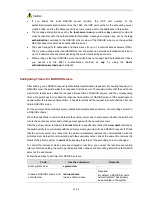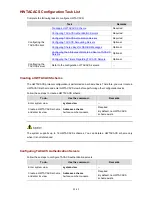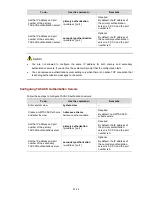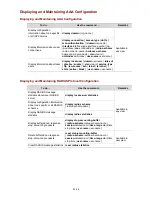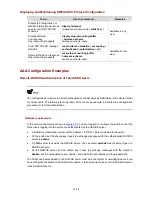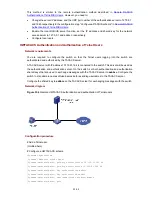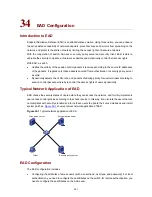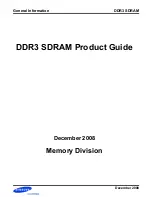
33-21
To do…
Use the command…
Remarks
Optional
Set the response timeout time
of RADIUS servers
timer response-timeout
seconds
By default, the response
timeout time of RADIUS
servers is three seconds.
Optional
Set the time that the switch
waits before it try to
re-communicate with primary
server and restore the status of
the primary server to active
By default, the switch waits five
minutes before it restores the
status of the primary server to
active.
timer quiet
minutes
Optional
Set the real-time accounting
interval
timer realtime-accounting
minutes
By default, the real-time
accounting interval is 12
minutes.
Enabling Sending Trap Message when a RADIUS Server Goes Down
Follow these steps to specify to send trap message when a RADIUS server goes down:
To do…
Use the command…
Remarks
Enter system view
—
system-view
Optional
Enable the sending of trap
message when a RADIUS
server is down
radius
trap
{
authentication-server-down
|
accounting-server-down
}
By default, the switch does not
send trap message when a
RADIUS server is down.
z
This configuration takes effect on all RADIUS schemes.
z
The switch considers a RADIUS server as being down if it has tried the configured maximum times
to send a message to the RADIUS server but does not receive any response.
Enabling the User Re-Authentication at Restart Function
The user re-authentication at restart function applies only to the environment where the RADIUS
authentication/authorization and accounting server is CAMS.
In an environment that a CAMS server is used to implement AAA functions, if the switch reboots after an
exclusive user (a user whose concurrent online number is set to 1 on the CAMS) gets authenticated and
authorized and begins being charged, the switch will give a prompt that the user has already been














